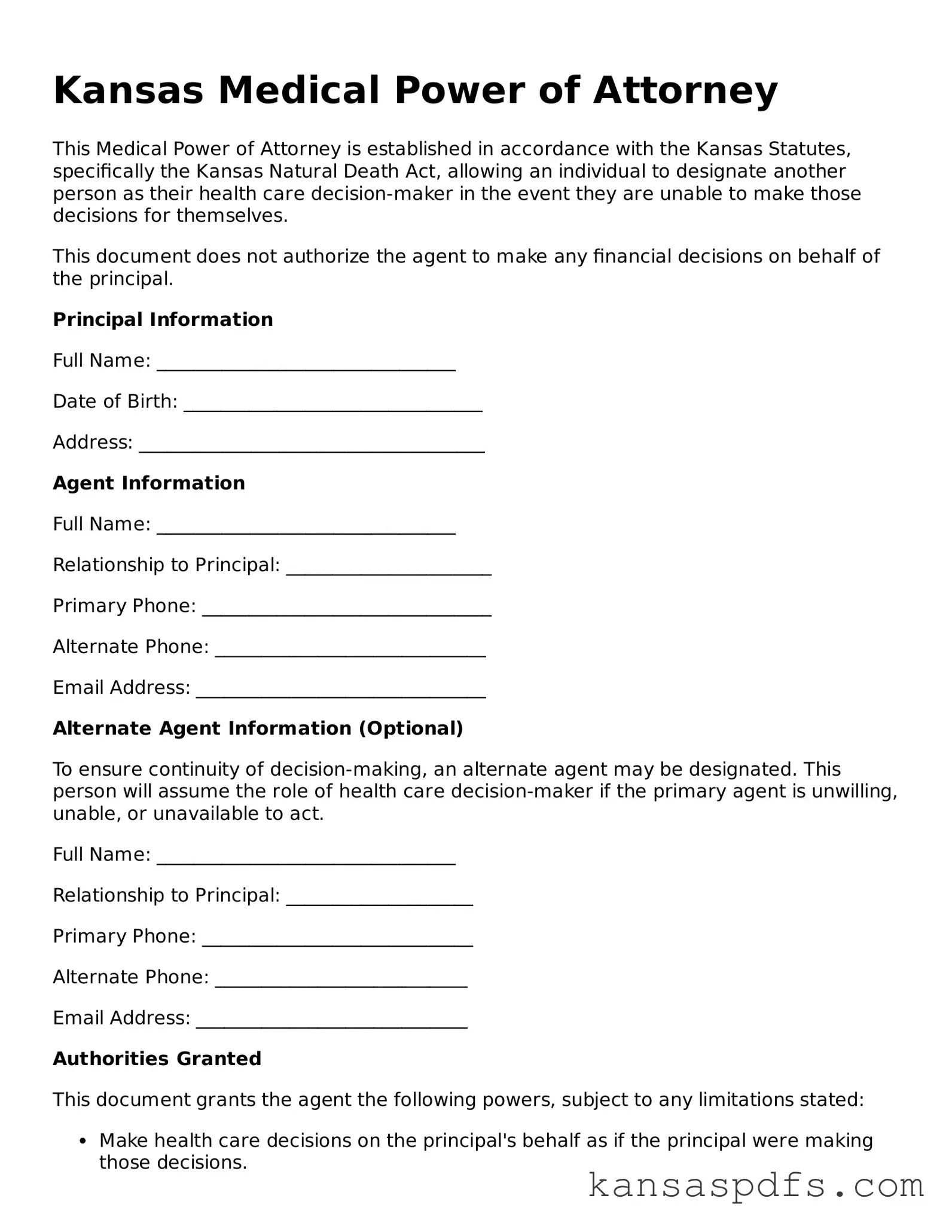Kansas Medical Power of Attorney
This Medical Power of Attorney is established in accordance with the Kansas Statutes, specifically the Kansas Natural Death Act, allowing an individual to designate another person as their health care decision-maker in the event they are unable to make those decisions for themselves.
This document does not authorize the agent to make any financial decisions on behalf of the principal.
Principal Information
Full Name: ________________________________
Date of Birth: ________________________________
Address: _____________________________________
Agent Information
Full Name: ________________________________
Relationship to Principal: ______________________
Primary Phone: _______________________________
Alternate Phone: _____________________________
Email Address: _______________________________
Alternate Agent Information (Optional)
To ensure continuity of decision-making, an alternate agent may be designated. This person will assume the role of health care decision-maker if the primary agent is unwilling, unable, or unavailable to act.
Full Name: ________________________________
Relationship to Principal: ____________________
Primary Phone: _____________________________
Alternate Phone: ___________________________
Email Address: _____________________________
Authorities Granted
This document grants the agent the following powers, subject to any limitations stated:
- Make health care decisions on the principal's behalf as if the principal were making those decisions.
- Have access to the principal's medical records necessary for making informed decisions about the principal's health care.
- Communicate with any health care provider regarding the principal's health care.
- Make decisions to provide, withhold, or withdraw life-sustaining treatments.
Limitations
Any limitations to the powers granted to the agent should be listed below:
________________________________________________________________
________________________________________________________________
Duration
This Medical Power of Attorney becomes effective immediately and remains in effect until the principal’s death, unless revoked by the principal or stated otherwise. A specific termination date can be noted below:
Termination Date: ___________________________
Signature of Principal
By signing below, I affirm that I understand the purpose and scope of this document and I grant the powers listed to the designated agent and, if applicable, to the alternate agent.
Signature: _______________________________ Date: __________________
Signature of Agent
By signing below, the designated agent affirms their willingness to act in accordance with the principal’s wishes and within the scope of authority granted by this document.
Signature: _______________________________ Date: __________________
Signature of Alternate Agent (Optional)
By signing below, the designated alternate agent affirms their willingness to act in accordance with the principal’s wishes and within the scope of authority granted by this document, should the primary agent be unable to serve.
Signature: _______________________________ Date: __________________
Witness Statement
This document must be signed in the presence of two witnesses, who affirm that the principal appeared to understand the nature of this document and was free from duress or undue influence at the time of signing.
Witness 1: Signature: _______________________________ Date: __________________
Printed Name: _____________________________
Witness 2: Signature: _______________________________ Date: __________________
Printed Name: _____________________________

